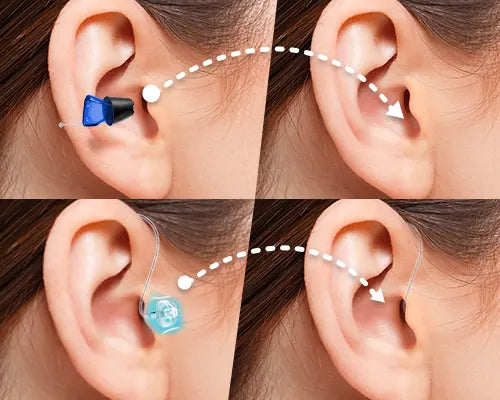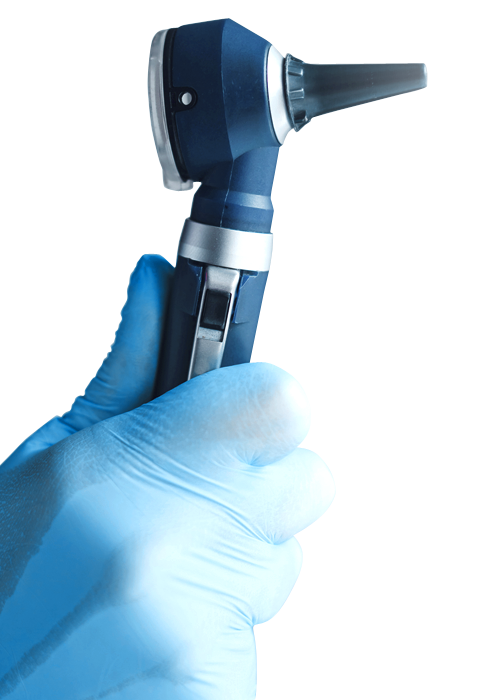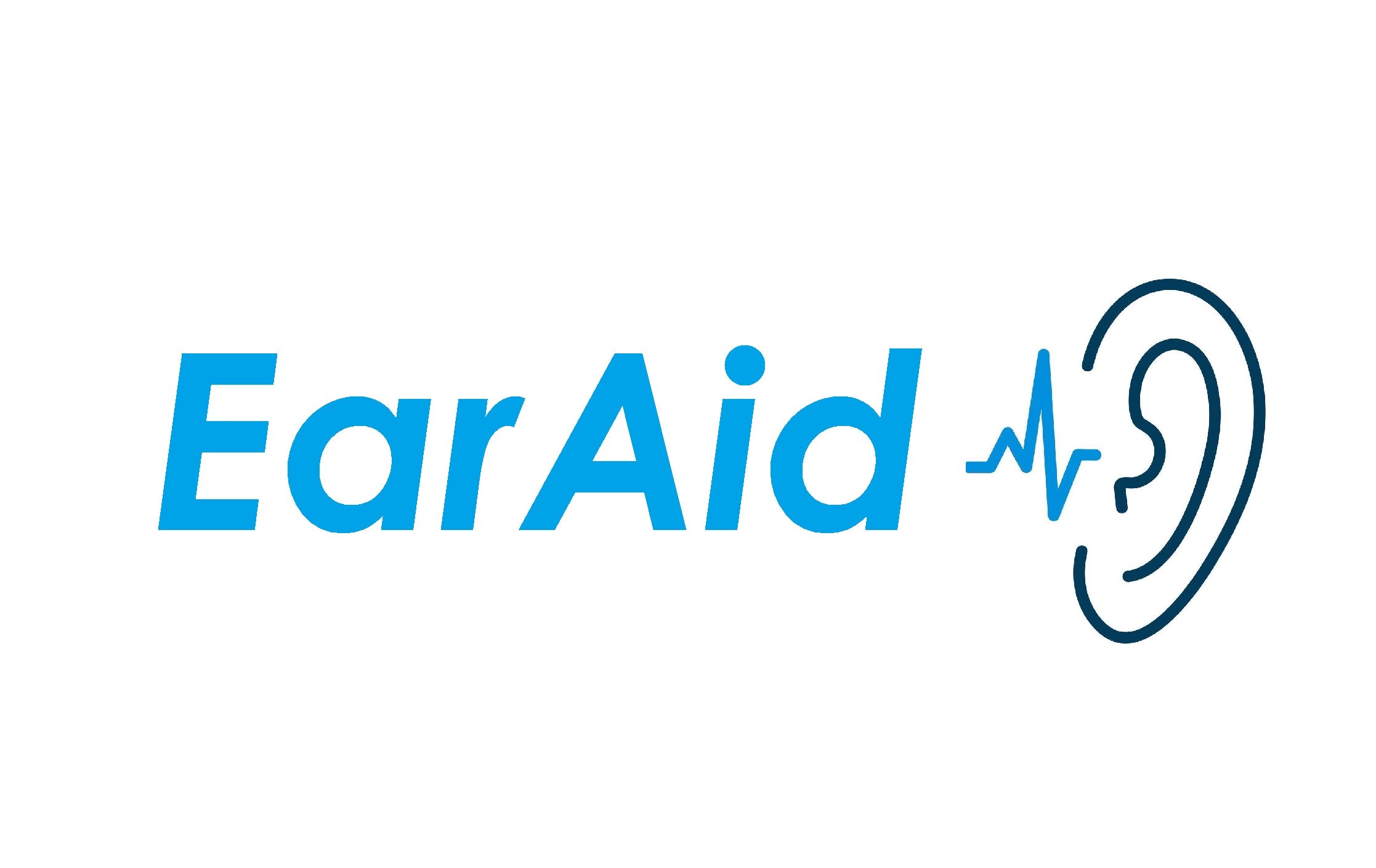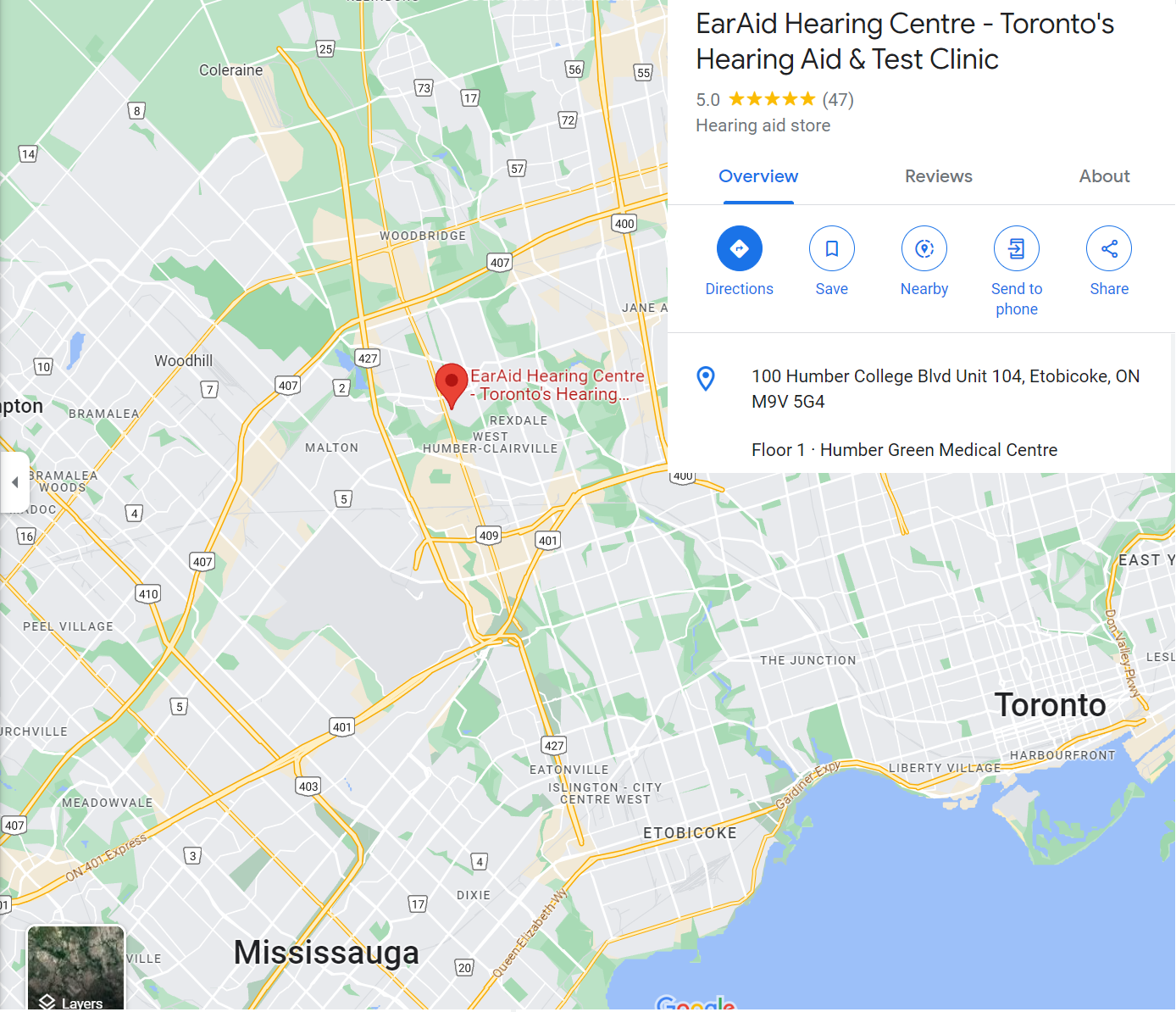Hearing Aid Buying Guide

So you’re ready to explore the world of hearing aids and you need an honest guide to help you make the right decision. That’s where this hearing aid buyer's guide will come handy.
Realistic Expectations

Realistic Expectations
The first thing to understand is that hearing aids will not restore your hearing to 100% normal, regardless of what you’ve read or been told. Hearing aids function by picking up sounds in your environment, processing it through an algorithm to determine which sounds need to be amplified and which sounds don’t, and then output the sounds at the right levels according to your hearing thresholds. This leads us to our first point of advice:
Act Early

Act Early
It’s important to know that the earlier you make the decision to seek out hearing amplification the more likely you are to have a positive outcome. The old adage “use it or lose it” holds true to your sense of hearing. A lack of stimulus can cause your nerves to become “lazy”. Seeking hearing amplification after many years of having hearing loss makes it more difficult for the brain to adapt. This brings us to our second point of advice:
Finding A Clinic

Finding A Clinic
You’re now ready to take the next step, and that is finding a reputable hearing clinic. There are four types of hearing aid clinics:
- Independently owned clinics
- Manufacturer owned clinics
- Wholesale dispensers of hearing aids
- New and emerging field of remote dispensing of hearing aids
For new hearing aid users we recommend that you seek out an independently owned hearing clinic with Audiologists and Hearing Instrument Specialists as they are trained and experienced in the sole task of conducting hearing tests and prescribing hearing aids. Look for a clinic with good reviews and short wait times and those that are open to walk-in visits in case your hearing aids break down. Convenience & quality of service is a big advantage here.
As opposed to independent clinics, manufacturer owned hearing clinics are limited in the number of brands they will likely dispense. It is in their interest to only dispense one brand of hearing aid, namely the one they produce themselves. This limits the choices you are given and so you may end up with a device that does not fit all your needs.
Wholesale retailers of hearing aids, unlike independent clinics are also limited in the brands and models they dispense, and can have waiting times of weeks or even months. If waiting times are long and appointments are short, the service one receives can be limited. A business model whose sole goal is to sell as many hearing aids as possible in a short period of time can lead to a bad customer experience, particularly for new hearing aid users.
The newest model of hearing aid dispensing is the online one which has taken ahold since the pandemic in 2020. Manufacturers have updated their smartphone apps allowing the clinician to perform nearly all fine-tuning tasks remotely. If you’re looking for quality hearing aids at lower prices, this could be a good option. Make sure the clinic offers a number of brands and models if you decide to go this route. Read our article on online hearing aids to learn more.
Hearing Test

Hearing Test
You’ve now found a reputable clinic and will require a hearing test. The hearing test should take place in a quiet room and inside a sound-treated booth. The tests that should be performed are:
1. Pure tone audiometry.
2. Bone conduction audiometry.
3. Tympanometric assessment.
Based on the results above, the clinician will determine whether you qualify for the smaller In-The-Ear models or whether a Behind-The-Ear model is more appropriate. The clinician will also take note of type of hearing loss, whether it’s conductive or sensorineural, and if there is an asymmetrical component.
Ruling Out Urgent Medical Reasons

Ruling Out Urgent Medical Reasons
If there is an underlying cause for your hearing loss which is not congenital or age related you may require medical attention. In this case your family physician should refer you to an Ear-Nose-Throat Specialist before considering hearing aids.
Choosing The Right Hearing Aid

Choosing The Right Hearing Aid
We now have an understanding of the type and degree of your hearing loss, and it’s time to pick a hearing aid model and style.
Hearing aids come in four technology levels and three different styles. The four technology levels are Essential, Standard, Advanced, Premium.
Read more about the difference between the technology levels on our hearing aid price guide.
As you go up in technology levels the more natural the sound and the better it will be at processing speech in noisy environments. The differences in technology levels lie within the chip and the algorithm inside the device.
The three styles of hearing aids are Behind-the-ear, Receiver-in-the-ear, Inside-the-Ear.
When choosing an aid it is wise to keep the future in mind as well as your immediate needs. Should your hearing change over the next few years, can the chosen hearing aids be programmed to accommodate any changes? This is a good question to present to your hearing professional.
The smaller the hearing aid the less space there is to pack features in and the more restricted it is in terms of sound amplification. Based on your lifestyle, cosmetic preferences, and budget needs, your clinician will recommend the most appropriate hearing aid. Make sure to ask what brands are available. The brands we recommend are Phonak, Resound, Signia, Bernafon, Oticon, Starkey, Widex, Unitron, Beltone.
Demo The Hearing Aids If Possible

Demo The Hearing Aids If Possible
Depending on your hearing loss, you may be able to demo the hearing aids in the clinic for a better understanding of what they sound like, although it’s important to keep in mind that a demonstration in a clinic is not entirely reflective of how the hearing aids will perform in normal everyday situations. Also, the demo hearing aids are limiting in the amount of fine-tuning that can be done. Your very own hearing aids will come with custom parts made to your ear and your clinician should be performing a number of fine-tuning tasks to fit your particular needs and wants, something that a demo hearing aid will never be able to achieve.
More models these days offer direct streaming to your smartphone. This is a very handy feature as long as your smartphone is compatible. Many of our clients find this feature extremely useful. Make sure to ask about this feature and whether it is available in the model that has been recommended.
Ask About Terms of Sale

Ask About Terms of Sale
You’ve now picked a model and agreed to a price. It’s time to go over the warranty and services that will be provided along with your purchase. Ask about the warranty period, the loss & damage insurance, and the service plan. Inquire about the return policy along with the upgrade/downgrade option in case you wish to go with a different set of hearing aids. When presented with the purchase agreement, make sure to read all of the clauses and ask questions when you’re unsure of what is being said.
You’ve now picked a model and agreed to a price. It’s time to go over the warranty and services that will be provided along with your purchase. Ask about the warranty period, the loss & damage insurance, and the service plan. Inquire about the return policy along with the upgrade/downgrade option in case you wish to go with a different set of hearing aids. When presented with the purchase agreement, make sure to read all of the clauses and ask questions when you’re unsure of what is being said.
Getting Fitted With Your Hearing Aids

Getting Fitted With Your Hearing Aids
After placing your order, it typically takes 1-2 weeks for your order to be customized and shipped to your clinic. You are now ready to be fitted, here’s what to keep in mind.
- If you order a BTE or RITE model, your hearing aids may come with a custom tip or ear piece. If you find these uncomfortable they may be replaced with domes.
- In-The-Ear hearing aids are usually manufactured to the shape of your ears. By their nature they will cause occlusion (blocking feeling), which you will have to adapt to over a couple of weeks. Take note of any feedback (whistling issues) and comfort issues. If you are having consistent trouble with feedback or comfort the shell should be remade at which point the clinician may take a new earmould impression.
- The clinician should perform a real-ear measure to make sure that the hearing aids are performing according to your needs. Sometimes this is done during your fitting appointment and other times during a follow up visit.
- Make note of the quality of the sound and ask for any fine-tuning requests. Perhaps the sound is too sharp, or the volume is too loud, or the hearing aids are picking up too much background noise. These are all qualities that can be tweaked through programming.
- Oftentimes as a new user, your clinician may set your hearing aids to a beginner’s volume and gradually increase it over time at your follow visits. This allows for your brain to comfortably adapt to the things you hear around you.
Follow-Ups

Follow-Ups
An independent clinic usually schedules regular follow-ups. We recommend that they check in with you two weeks after the fitting, one month after the previous follow-up, and then at least every six months. You should be able to visit the clinic during business hours whenever needed, and it should be straightforward and convenient. If it takes more than three days to get an appointment, this could be a red flag.
At your appointments, your clinician should connect your hearing aids to a computer to check for any available firmware updates. These updates can significantly improve how your hearing aids perform, much like how updating a computer's operating system can lead to major changes in its functionality.
Discuss any problems you encounter with your clinician as soon as they arise. If they’re unaware of the issues, they won’t be able to address them. Their aim is to ensure your complete satisfaction and to help you maximize the benefits of your hearing aids. With today’s advanced digital hearing aids, many issues that users in the past might have faced can now be easily resolved—your clinician just needs to be informed about them!
Maintenance

Maintenance
While hearing aids are quite durable, dedicating a few minutes each day to their cleaning and maintenance will help ensure they last longer. Regularly replace the filters and, if your hearing aids have domes, change them every three months. Use high-quality batteries, as inexpensive ones can corrode internal components and may have a shorter lifespan. Additionally, investing in a dehumidifier or dry-aid kit can greatly extend the life of your hearing aids.
Do Annual Hearing Tests

Do Annual Hearing Tests
Hearing loss can change over time, so it's important to utilize the programmable features of your hearing aids.
Request that your clinic schedule annual hearing tests followed by reprogramming. This will help ensure you are getting the most out of your hearing aids.
At the conclusion of your service plan, ask your clinician if there are any new technologies that could benefit you.
Summary
As an experienced hearing aid user, be sure to make the most of the service plan included with your purchase. Maintain regular contact with your clinician or hearing clinic to access any firmware updates. Additionally, arrange for annual hearing tests—typically provided at no extra cost—to monitor your hearing and make any necessary adjustments to your hearing aids.
To ensure a successful experience with your hearing aid purchase, we recommend the following steps:
- Set realistic expectations for hearing aids. When you're motivated, they can significantly improve your hearing and, consequently, your quality of life.
- As soon as you notice a decline in your hearing, don't delay in seeking advice. Waiting to address hearing loss can make it much harder to achieve a positive result when you eventually get hearing aids.
- Look for an independent hearing clinic with a strong reputation that emphasizes the quality of its service.
- The hearing evaluation should include a comprehensive assessment.
- In certain situations, you should seek medical attention before considering hearing aids. These situations include sudden hearing loss, asymmetrical hearing loss, and conductive hearing loss.
- Considering your hearing loss, cosmetic preferences, budget, and lifestyle needs, your clinician should provide recommendations from a wide range of top brands and models. Be cautious of clinics that restrict your choices.
- Whenever possible, request that the clinician demonstrate your selected hearing aids to give you a clearer understanding of their sound quality and performance.
- Be sure to inquire about the warranties, insurance, and service plan included with your purchase. Don’t hesitate to ask detailed questions about the purchase agreement.
- When being fitted with hearing aids, ensure they are comfortable and request that the clinician perform fine-tuning adjustments test.
- Your hearing clinic should regularly follow up with you, as the first month of using hearing aids is crucial for achieving a successful outcome. Hearing aids should not be a one-time visit purchase.
- Keep your hearing aids in good condition by cleaning them regularly and replacing the filters as needed.
- Undergo annual hearing tests, and if any changes are detected, your clinician should adjust the programming of your hearing aids accordingly.
As an independent clinic, EarAid can provide hearing aids from a wide range of brands to meet your unique needs. Contact us today to speak with one of our hearing experts, and find out more about the latest top models available here.
We now offer an online hearing aid dispensing model that provides exceptional prices along with high-quality remote service. This is an excellent option for current hearing aid users who want to upgrade their technology and have a smartphone. For more information about our current offers and to inquire about remote dispensing and promotions, please call our head office.
At EarAid, you'll receive a tailored service plan designed to address your unique needs.
You can choose from three levels of hearing aids: Premium, Advanced, and Standard. Each purchase comes with a lifetime service plan, a two or three-year warranty, loss and damage insurance, and three years of remote support.

2500+
Clients since 2019

4.9
Stars on Google

2
Locations in Ontario
Factors That Matter To You

Two locations in the Greater Toronto Area
Contact us today
Call our office if you have any questions about our hearing aids or the process. We are here to answer any questions you may have.






